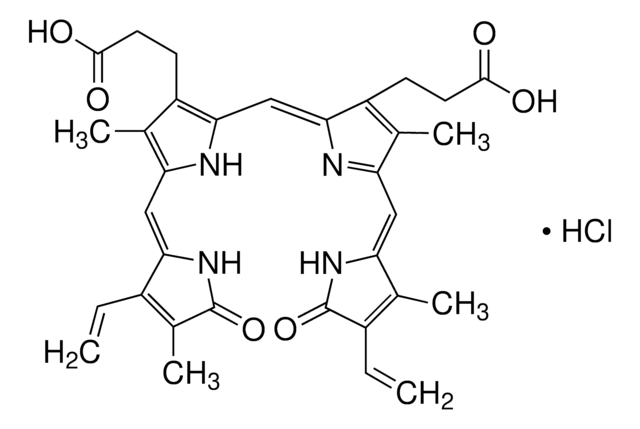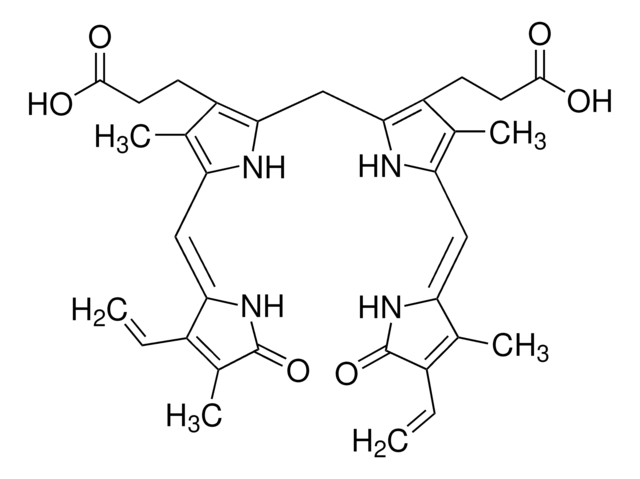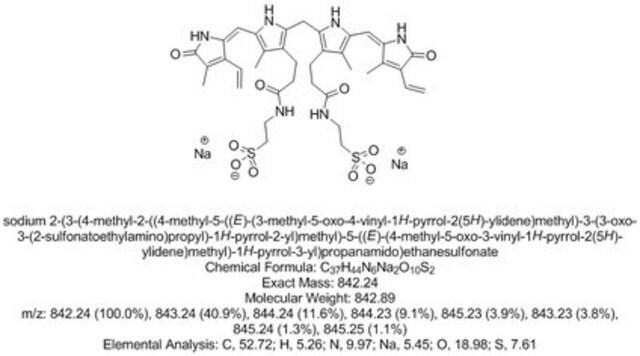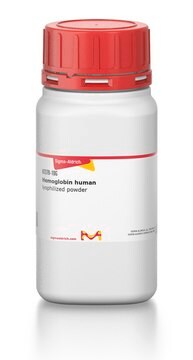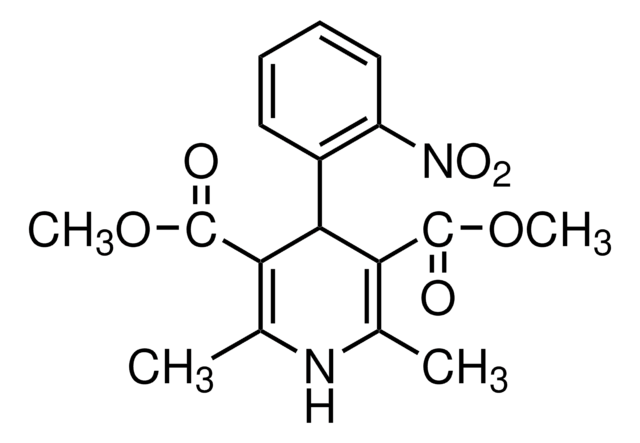B3687
Biliverdin Reductase A human
recombinant, expressed in E. coli, ≥90% (SDS-PAGE), buffered aqueous solution
Synonim(y):
BLVRA, BVRA, Bilirubin: NAD(P)+ oxidoreductase
About This Item
Polecane produkty
rekombinowane
expressed in E. coli
Poziom jakości
Próba
≥90% (SDS-PAGE)
Formularz
buffered aqueous solution
aktywność właściwa
≥700 units/mg protein
Warunki transportu
dry ice
temp. przechowywania
−20°C
informacje o genach
human ... BLVRA(644)
Działania biochem./fizjol.
Definicja jednostki
Postać fizyczna
Kod klasy składowania
12 - Non Combustible Liquids
Klasa zagrożenia wodnego (WGK)
WGK 2
Temperatura zapłonu (°F)
Not applicable
Temperatura zapłonu (°C)
Not applicable
Wykazy regulacyjne
Wykazy regulacyjne dotyczą głównie produktów chemicznych. Można w nich podawać ograniczoną liczbę informacji na temat produktów niechemicznych. Brak wpisu oznacza, że żaden ze składników nie znajduje się w wykazie. Użytkownik odpowiada za zagwarantowanie bezpiecznego i zgodnego z prawem stosowania produktu.
EU REACH SVHC Candidate List
EU REACH Annex XIV (Authorisation List)
Wybierz jedną z najnowszych wersji:
Masz już ten produkt?
Dokumenty związane z niedawno zakupionymi produktami zostały zamieszczone w Bibliotece dokumentów.
Nasz zespół naukowców ma doświadczenie we wszystkich obszarach badań, w tym w naukach przyrodniczych, materiałoznawstwie, syntezie chemicznej, chromatografii, analityce i wielu innych dziedzinach.
Skontaktuj się z zespołem ds. pomocy technicznej
